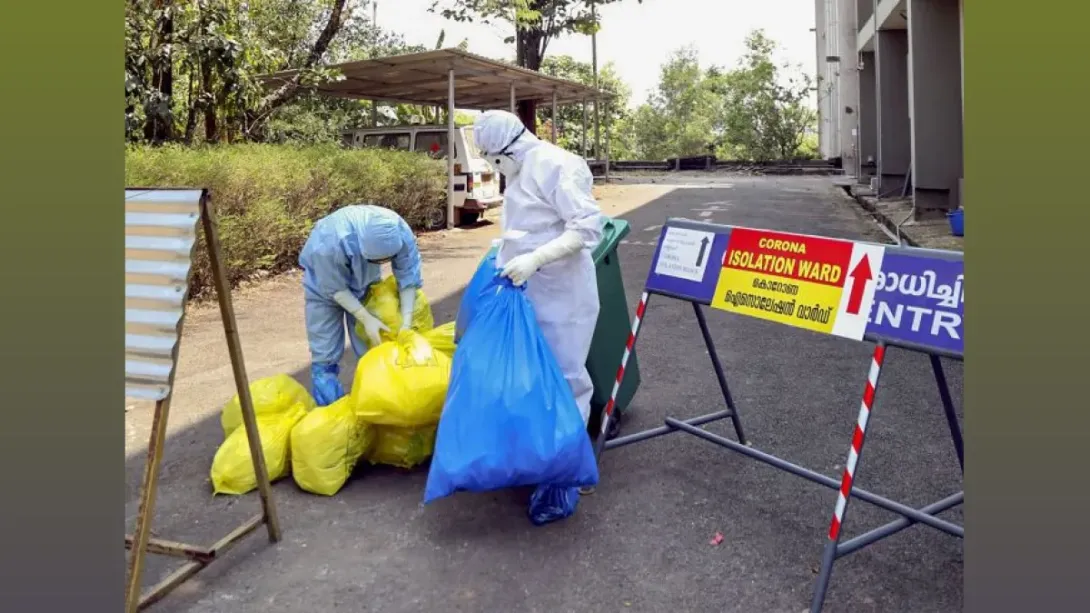Kerala Finance Minister K.N. Balagopal reaffirmed the state’s commitment to sustaining its expansive welfare framework while maintaining fiscal prudence. In a recent interaction, Balagopal emphasized that Kerala’s welfare schemes are not merely social expenditures but strategic investments aimed at human capital development and inclusive growth. Despite fiscal pressures from declining central transfers and mounting liabilities, the government remains steadfast in protecting programs targeting education, healthcare, and social security. He underscored the state’s approach of balancing welfare priorities with responsible financial management—asserting that economic growth, equity, and sustainability must advance together in Kerala’s developmental roadmap.
Sustaining Kerala’s Welfare Vision
Kerala’s welfare model has long been recognized as one of the most comprehensive in India, integrating social justice, public health, and education within a rights-based framework. Finance Minister K.N. Balagopal reiterated that the state’s policy thrust remains focused on ensuring that economic progress translates into tangible benefits for all sections of society.
According to Balagopal, Kerala’s welfare approach is not a populist strategy but a structural necessity for sustained growth. “Our welfare commitments are fundamental investments in our people,” he said, emphasizing that human development indicators serve as the true measure of a state’s economic performance.
From direct cash transfers and pension schemes to subsidized healthcare and education support, Kerala’s initiatives aim to shield vulnerable populations from income shocks while improving long-term productivity.
Fiscal Challenges and Strategic Balancing
The Finance Minister acknowledged that Kerala faces significant fiscal constraints, driven by reduced central allocations, the aftermath of the pandemic, and growing social obligations. However, he maintained that fiscal discipline remains a core policy objective.
“We are navigating a tight fiscal environment, but our focus on efficient resource utilization and transparent financial management allows us to continue supporting welfare schemes without compromising fiscal responsibility,” Balagopal noted.
He also pointed to innovative financing mechanisms—such as leveraging public sector undertakings, tapping into social impact bonds, and promoting local self-governance—as tools to maintain funding continuity. The government, he said, is increasingly emphasizing digitalization, data-driven targeting, and accountability in scheme delivery to minimize leakages and enhance impact.
Prioritizing Social Security and Human Development
Social security continues to form the backbone of Kerala’s public spending. Pension schemes for senior citizens, widows, and differently-abled individuals are being strengthened with improved digital disbursement mechanisms. Similarly, programs supporting marginalized communities—such as fisherfolk, farmers, and informal workers—remain central to the state’s inclusive agenda.
The government has also prioritized public healthcare and education, two sectors that have long defined Kerala’s model of human-centered development. Investments in primary health centers, medical colleges, and school infrastructure are being sustained despite fiscal headwinds. “A well-educated and healthy population is the foundation of Kerala’s productivity,” Balagopal said, underscoring that the returns on social spending are both economic and societal.
Economic Diversification and Growth Prospects
Beyond welfare, Balagopal emphasized Kerala’s growing emphasis on economic diversification, particularly in renewable energy, tourism, IT-enabled services, and knowledge industries. These sectors are expected to generate employment, expand the tax base, and support fiscal sustainability.
He highlighted recent initiatives to attract private investment and foster entrepreneurship through improved infrastructure and policy reforms. “Our focus is on creating a high-value economy driven by innovation, sustainability, and social equity,” he added.
Experts note that Kerala’s shift toward a knowledge-driven economy complements its welfare ethos, reinforcing the state’s reputation as a model of inclusive modernization.
Balancing Welfare and Reform
While Kerala’s expansive welfare system often draws scrutiny for its fiscal implications, Balagopal argued that the long-term social returns far outweigh the short-term costs. He maintained that welfare spending contributes directly to social cohesion, human capital formation, and consumer demand—key pillars of sustainable development.
He also emphasized the importance of maintaining trust between the state and its citizens. “Welfare policies are not charity—they are instruments of empowerment. They ensure that growth is equitable, participatory, and resilient,” he said.
Balagopal acknowledged, however, that continuous reform is necessary to adapt to changing economic realities. The government is currently exploring new models of public-private partnership (PPP) and leveraging green finance to strengthen infrastructure without increasing fiscal stress.
Conclusion: A Model of Balanced Progress
Kerala’s commitment to its welfare architecture, even amid financial challenges, reflects a governance philosophy centered on inclusivity and human dignity. Under Balagopal’s stewardship, the state continues to strive for a delicate balance between compassion and calculation—ensuring that fiscal prudence does not erode social protection, and welfare ambition does not compromise economic stability.

Comments